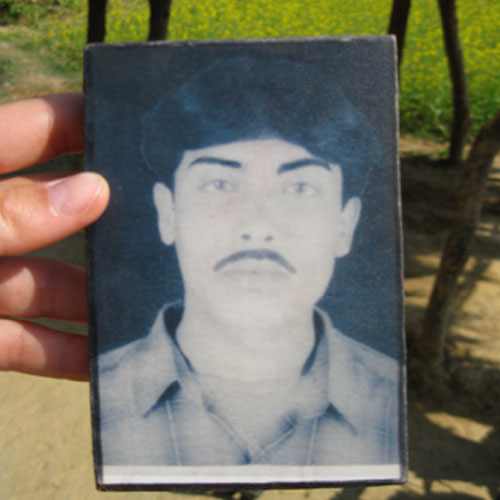Eight young people aged 14 to 23 disappeared from one village in 2002
FACTS

Dhaniram Tharu, Soniram Tharu, Radhulal Tharu, Prem Prakash Tharu, Kamala Tharu, Mohan Tharu, Lauti Tharu and Chillu Tharu– two girls and six boys aged between 14 and 23 at the time of their disappearance – were taken by soldiers from their homes in Nauranga Village, at around midnight on 11 April 2002. They were all members of the Tharu indigenous community. Their families have never seen them again or received any credible information from the authorities about what happened to them.
Read more: here
Procedure
The families of the disappeared filed cases in the Supreme Court in 2003 seeking release of the young people. All state authorities denied detaining them, and the Supreme Court closed the cases. In 2006, the army informed the Neupane Committee (created by the Government of Nepal to investigate the fate of allegedly disappeared persons) that seven of the young people were killed in crossfire during an encounter with Maoists. The families have refuted the army’s allegations, because the victims left their houses unarmed and guarded by armed soldiers.
In January 2011, families of the victims filed a case with the Human Rights Committee, represented by non-governmental organisations Advocacy Forum and REDRESS. The Human Rights Committee decided the case in July 2015.
It found the eight young people were victims of enforced disappearance, resulting in violations of their rights to life, to be free from torture, to liberty and to personality before the law. It found further that the anguish and stress caused to the families of the victims amounted to a serious violation of their human rights.
Read the decision: English Nepali
RECOMMENDATIONS
The Human Rights Committee recommended that Nepal carry out an effective and complete investigation into the disappearances, provide detailed information to the families, and prosecute and punish those responsible. It also recommended that Nepal provide necessary and adequate rehabilitation and treatment to the families, and effective reparation, including adequate compensation and appropriate measures of satisfaction, to the families. In addition it must take steps to prevent similar violations in the future, including by introducing legislation to allow for criminal prosecution of torture, extrajudicial executions, and enforced disappearances. It must also translate the Human Rights Committee’s decision and distribute it widely.
| Investigation into the facts of the case, prosecution and sanctions of the perpetrators | |
| Nepal has failed to adopt measures with regard to the investigation, prosecution and sanction of those responsible. Nepal continues arguing that investigation into conflict-related crimes must be carried out by transitional justice bodies in spite of the well-established case law of the Committee that holds that transitional justice mechanisms cannot replace judicial remedies in cases of gross human rights violations. | |
| Information on the investigation and, in case of death, locate the remains and hand over to the family D No information on the progress of the investigation and on the existence of any concrete plan to locate, exhume, identify and return his father’s mortal remains has been provided to the families of the victims | |
| No investigation has been initiated and no information has been provided to the families. | |
| Provision of adequate compensation | |
| Although the government considers support of the interim relief as compensation, such support cannot replace the compensation victims should receive. The families of the victims have not received any form of compensation for the harm suffered. | |
| Adequate psychological rehabilitation and medical treatment | |
| No measures have been adopted to implement the Committee’s recommendation regarding the provision of adequate psychological rehabilitation and medical treatment. | |
| Appropriate measures of satisfaction | |
| No measures of satisfaction have been adopted by the government of Nepal. | |
| Amendment of domestic legislation on enforced disappearance, torture and arbitrary executions | |
| Albeit the new Criminal Code (entered into force in 2018) codifies the autonomous offences of torture and enforced disappearance, the definitions of the crimes enshrined therein and the corresponding regulation – concerning, for instance, statutes of limitation and compensation – remains at odds with international law. Further, there are no separate or special laws on extrajudicial executions. | |
| Translation and dissemination of the decision | |
| The Views of the Human Rights Committee on this communication have been translated into Nepali but not disseminated widely. |
Note the gradings are made by the Human Rights Committee.
EFFORTS FOR IMPLEMENTATION
- As a first step, on 19 April 2016 the authors in the case filed for the additional interim relief promised by the government. The victims’ legal representatives will work with the Government to push for further implementation.
